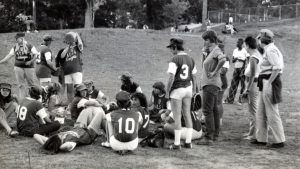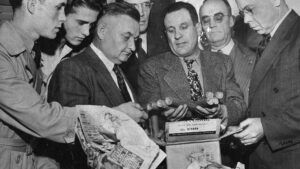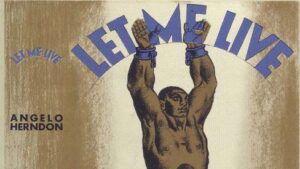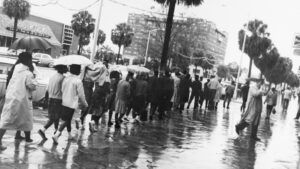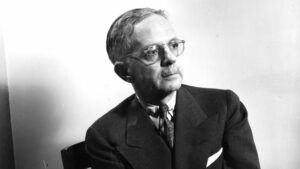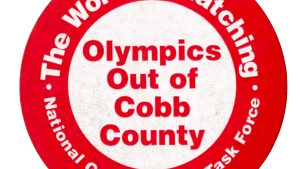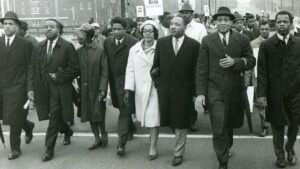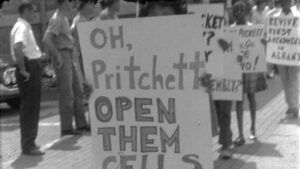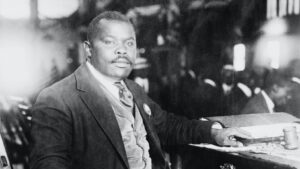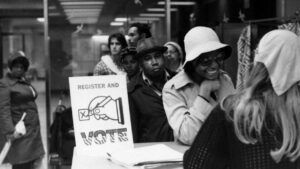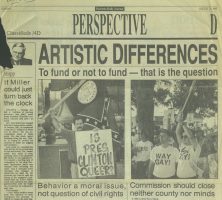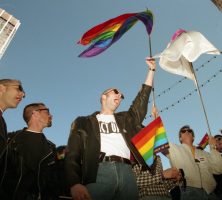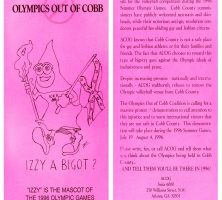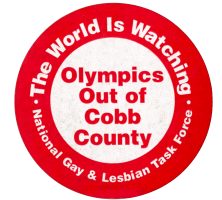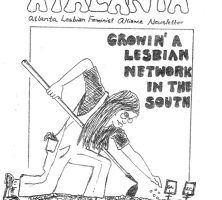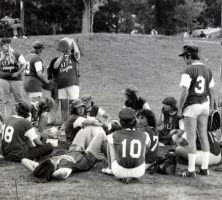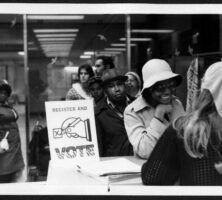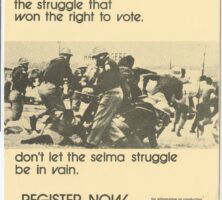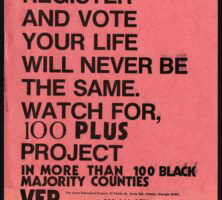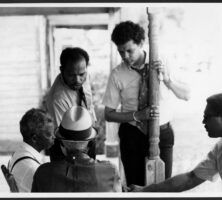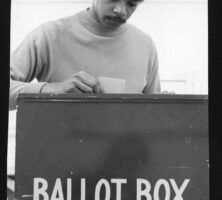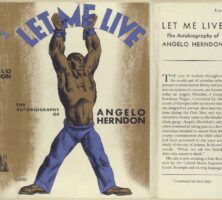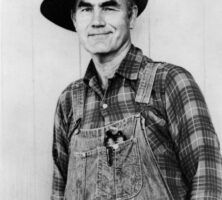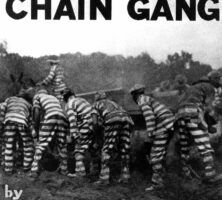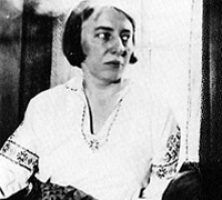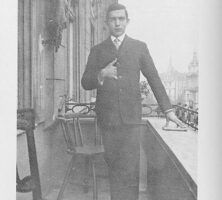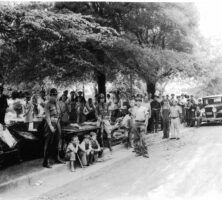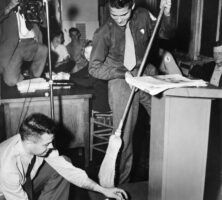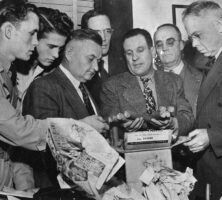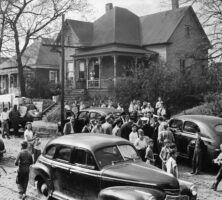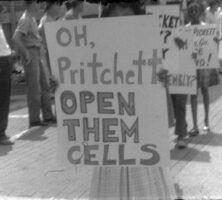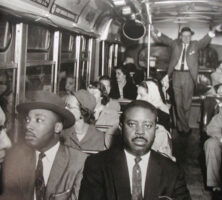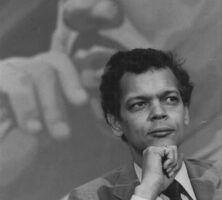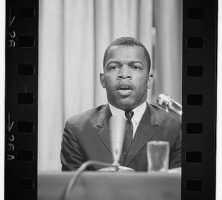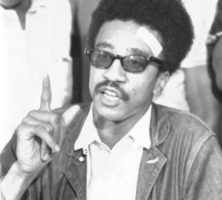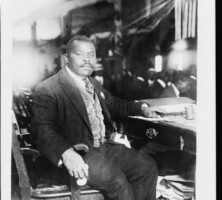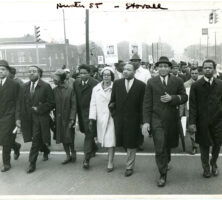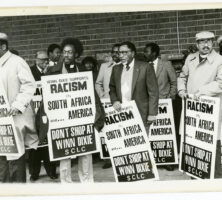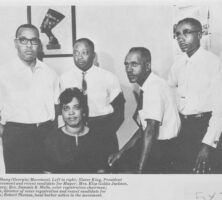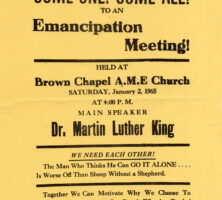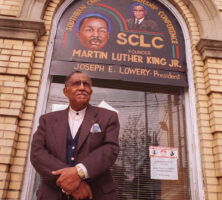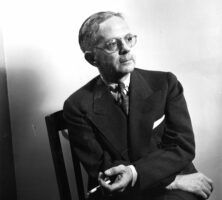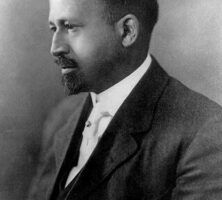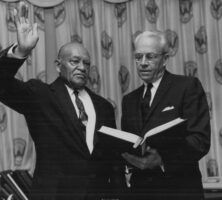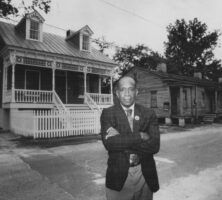The New Georgia Encyclopedia is supported by funding from A More Perfect Union, a special initiative of the National Endowment for the Humanities.
Following a controversy over the 1993 staging of Terrence McNally’s Lips Together, Teeth Apart at Marietta’s Theatre in the Square, the Cobb County Board of Commissioners passed an anti-gay resolution condemning what it called “gay lifestyles.” Commissioners stated that they would not fund activities that violated “community standards” and passed a separate resolution revoking Theatre in the Square’s $40,000 annual grant.
Courtesy of Special Collections & Archives, Georgia State University Library, Carol Brown papers, #W133_02_02.
The New Georgia Encyclopedia does not hold the copyright for this media resource and can neither grant nor deny permission to republish or reproduce the image online or in print. Requests for permission to publish or reproduce the resource should be submitted to Special Collections and Archives at Georgia State University.
Olympics Out of Cobb (OOOC) was a grassroots movement resisting the decision by the Atlanta Committee for the Olympic Games (ACOG) to hold the preliminary volleyball competition of the 1996 Olympic Games in Cobb County. Protestors borrowed tactics from groups like the AIDS Coalition to Unleash Power (ACT UP) and pledged to protest all the way to the Games if necessary. ACT UP members are pictured here at a protest in Woodruff Park in February 1994.
Courtesy of Special Collections & Archives, Georgia State University Library, Atlanta Journal-Constitution Photographic Archive, #AJCNS1994-02-27o.
The New Georgia Encyclopedia does not hold the copyright for this media resource and can neither grant nor deny permission to republish or reproduce the image online or in print. Requests for permission to publish or reproduce the resource should be submitted to Special Collections and Archives at Georgia State University.
Olympics Out of Cobb (OOOC) was a grassroots movement resisting the decision by the Atlanta Committee for the Olympic Games (ACOG) to hold the preliminary volleyball competition in Cobb County. The county came under scrutiny from local and national LGBTQ+ rights groups in 1993 when the Board of Commissioners passed a resolution condemning “gay lifestyles.” Cobb’s commissioners refused to rescind the resolution and the events were ultimately moved to Athens.
Courtesy of Atlanta History Center.
The New Georgia Encyclopedia does not hold the copyright for this media resource and can neither grant nor deny permission to republish or reproduce the image online or in print. Requests for permission to publish or reproduce the resource should be submitted to the Atlanta History Center.
Following its initial selection by the Atlanta Committee for the Olympic Games (ACOG) to host the preliminary volleyball competition, Cobb County came under scrutiny when its commissioners favored a resolution condemning "gay lifestyles." In response, local leaders and allies organized against the resolution and the decision to host the games in the county. Groups like the National Gay & Lesbian Task Force made stickers like these saying "The World is Watching: Olympics Out of Cobb County."
Courtesy of Atlanta History Center.
The New Georgia Encyclopedia does not hold the copyright for this media resource and can neither grant nor deny permission to republish or reproduce the image online or in print. Requests for permission to publish or reproduce the resource should be submitted to the Atlanta History Center.
Women of the Atlanta Lesbian Feminist Alliance self-published their own monthly newsletter, Atalanta, named after a huntress from Greek mythology and meaning "equal in weight." They sent the newsletter to other women’s groups so that news of Georgia’s queer life circulated across the nation and other parts of the lesbian world, connecting feminist lesbians in Atlanta to their global sisters.
Courtesy of Atlanta History Center, Atlanta Lesbian Feminist Alliance newsletters.
The New Georgia Encyclopedia does not hold the copyright for this media resource and can neither grant nor deny permission to republish or reproduce the image online or in print. Requests for permission to publish or reproduce the resource should be submitted to the Atlanta History Center.
Perhaps the most important social benefit of the Atlanta Lesbian Feminist Alliance was its softball teams, notably the ALFA Omegas. The team competed nationally and allowed lesbians from Atlanta to build community around the country.
Courtesy of Atlanta History Center, Pamela Parker Photographs.
The New Georgia Encyclopedia does not hold the copyright for this media resource and can neither grant nor deny permission to republish or reproduce the image online or in print. Requests for permission to publish or reproduce the resource should be submitted to the Atlanta History Center.
Voters in Fulton County line up at the polls in the early 1970s.
Courtesy of Atlanta University Center, Robert W. Woodruff Library Archives, Voter Education Project Organizational Records.
The New Georgia Encyclopedia does not hold the copyright for this media resource and can neither grant nor deny permission to republish or reproduce the image online or in print. All requests for permission to publish or reproduce the resource must be submitted to the Atlanta University Center Robert W. Woodruff Library and Archives Research Center.
A flyer produced by the Voter Education Project in the early 1970s refers to the protests in Selma, Alabama, in 1965. The VEP, formed in 1962 as a program of the Southern Regional Council, was a voting rights and voter education organization based in Atlanta for thirty years.
Courtesy of Atlanta University Center, Robert W. Woodruff Library Archives, Voter Education Project Organizational Records.
The New Georgia Encyclopedia does not hold the copyright for this media resource and can neither grant nor deny permission to republish or reproduce the image online or in print. All requests for permission to publish or reproduce the resource must be submitted to the Atlanta University Center Robert W. Woodruff Library and Archives Research Center.
A flyer produced by the Voter Education Project in the early 1970s encouraged African Americans to exercise their right to vote. Based in Atlanta, the VEP promoted voter registration and education, and became known as an authoritative source on southern elections in general.
Courtesy of Atlanta University Center, Robert W. Woodruff Library Archives, Voter Education Project Organizational Records.
The New Georgia Encyclopedia does not hold the copyright for this media resource and can neither grant nor deny permission to republish or reproduce the image online or in print. All requests for permission to publish or reproduce the resource must be submitted to the Atlanta University Center Robert W. Woodruff Library and Archives Research Center.
John Lewis (left), who served as executive director of the Voter Education Project from 1971 to 1977, is pictured with Julian Bond in the Mississippi Delta during a Voter Mobilization Tour in 1971.
The New Georgia Encyclopedia does not hold the copyright for this media resource and can neither grant nor deny permission to republish or reproduce the image online or in print. All requests for permission to publish or reproduce the resource must be submitted to the Atlanta University Center Robert W. Woodruff Library and Archives Research Center.
A voter casts his ballot in Fulton County, circa 1972.
Courtesy of Atlanta University Center, Robert W. Woodruff Library Archives, Voter Education Project Organizational Records.
The New Georgia Encyclopedia does not hold the copyright for this media resource and can neither grant nor deny permission to republish or reproduce the image online or in print. All requests for permission to publish or reproduce the resource must be submitted to the Atlanta University Center Robert W. Woodruff Library and Archives Research Center.
Angelo Herndon, arrested in 1932 as a Communist insurrectionist while organizing workers in Atlanta, spent five years in the Georgia penal system before the U.S. Supreme Court granted his freedom in 1937. Herndon chronicled his experiences in Let Me Live, which was published by Random House in 1937.
The New Georgia Encyclopedia does not hold the copyright for this media resource and can neither grant nor deny permission to republish or reproduce the image online or in print. All requests for permission to publish or reproduce the resource must be submitted to the rights holder.
Georgia native and poet Don West briefly headed the Provisional Committee for the Defense of Angelo Herndon, an organization dedicated to exonerating Herndon, who was arrested as a Communist insurrectionist in Atlanta in 1932.
From In a Land of Plenty, by Don West
The New Georgia Encyclopedia does not hold the copyright for this media resource and can neither grant nor deny permission to republish or reproduce the image online or in print. All requests for permission to publish or reproduce the resource must be submitted to the rights holder.
Radical journalist John Spivak wrote the pamphlet "On the Chain Gang" for International Pamphlets, a series of propaganda tracts published by the Communist Party. Spivak's investigations into Georgia's chain gangs provided the basis for his novel Georgia Nigger (1932), which exposed the system's abuses and contributed to its reform.
The New Georgia Encyclopedia does not hold the copyright for this media resource and can neither grant nor deny permission to republish or reproduce the image online or in print. All requests for permission to publish or reproduce the resource must be submitted to the rights holder.
Grace Lumpkin published four novels in her lifetime. She is best known for her radical novels of the 1930s, To Make My Bread and A Sign for Cain, which address the economic and social turmoil of the Great Depression.
Courtesy of the University of South Carolina
The New Georgia Encyclopedia does not hold the copyright for this media resource and can neither grant nor deny permission to republish or reproduce the image online or in print. All requests for permission to publish or reproduce the resource must be submitted to the rights holder.
The composer Wallingford Riegger is pictured circa 1909 as a student in Berlin, Germany, where he studied the cello and composition for three years. A native of Albany, Riegger was summoned to testify before the Congressional House Committee on Un-American Activities in 1957, but he refused to answer their questions about suspected Communists.
From Wallingford Riegger: Two Essays in Musical Biography, by S. Spackman
The New Georgia Encyclopedia does not hold the copyright for this media resource and can neither grant nor deny permission to republish or reproduce the image online or in print. All requests for permission to publish or reproduce the resource must be submitted to the rights holder.
Mill workers went on strike at Callaway Mills in LaGrange during the General Textile Strike of ’34, along with approximately 44,000 others in Georgia.
Courtesy of Troup County Archives
The New Georgia Encyclopedia does not hold the copyright for this media resource and can neither grant nor deny permission to republish or reproduce the image online or in print. All requests for permission to publish or reproduce the resource must be submitted to the rights holder.
Homer Loomis, left, holds an envelope addressed to state assistant attorney general Dan Duke while Ralph Childers sweeps the torn-up charter for the Columbians, Inc. into it. Loomis and Childers were members of the white supremacist organization, which aimed to intimidate African Americans and Jews in Atlanta.
Courtesy of Atlanta Journal-Constitution.
The New Georgia Encyclopedia does not hold the copyright for this media resource and can neither grant nor deny permission to republish or reproduce the image online or in print. All requests for permission to publish or reproduce the resource must be submitted to the Atlanta Journal-Constitution.
Mario Buzzi (center), an undercover neo-Nazi investigator, holds dynamite confiscated from the Columbians organization during a press conference. Columbians Lanier Waller and James Ralph Childers signed confessions detailing their group's plans. Left to right: Waller; Childers; Solicitor General E. E. Andrews; James H. Sheldon, administrative chairman of the Anti-Nazi League; Buzzi; county detective I. M. Eason; and Atlanta police chief M. A. Hornsby.
Courtesy of Atlanta Journal-Constitution.
The New Georgia Encyclopedia does not hold the copyright for this media resource and can neither grant nor deny permission to republish or reproduce the image online or in print. All requests for permission to publish or reproduce the resource must be submitted to the Atlanta Journal-Constitution.
In 1946 an African American family moves into a house on Garibaldi Street in Atlanta after the arrest of four Columbians (members of a white supremacist organization) who demonstrated in front of the house. Police officers stand by to prevent trouble.
Courtesy of Atlanta Journal-Constitution.
The New Georgia Encyclopedia does not hold the copyright for this media resource and can neither grant nor deny permission to republish or reproduce the image online or in print. All requests for permission to publish or reproduce the resource must be submitted to the Atlanta Journal-Constitution.
Protesters march down Broad Street in Albany during the Albany Movement, one of the largest civil rights campaigns in Georgia. From 1961 to 1962 Black residents protested the city's segregationist practices. Around 1,200 protesters were imprisoned as a result of their activities during the movement.
Courtesy of Georgia Archives, Vanishing Georgia, #dgh231-86.
The New Georgia Encyclopedia does not hold the copyright for this media resource and can neither grant nor deny permission to republish or reproduce the image online or in print. Requests for permission to publish or reproduce the resource should be submitted to the Georgia Archives.
Demonstrators protest the imprisonment of fellow protestors by Albany police sheriff Laurie Pritchett during the Albany Movement, a collaborative effort by such civil rights groups as SNCC, the SCLC, and the NAACP to desegregate the city of Albany in 1961-62.
Courtesy of Walter J. Brown Media Archives and Peabody Awards Collection, University of Georgia Libraries, WSB Television Newsfilm Collection.
The New Georgia Encyclopedia does not hold the copyright for this media resource and can neither grant nor deny permission to republish or reproduce the image online or in print. All requests for permission to publish or reproduce the resource must be submitted to the Walter J. Brown Media Archives and Peabody Awards Collection.
Ralph David Abernathy (right) and Martin Luther King Jr. were central organizers of the Montgomery bus boycott, which demanded that Black passengers be treated fairly on public transportation.
Courtesy of David Fankhauser
The New Georgia Encyclopedia does not hold the copyright for this media resource and can neither grant nor deny permission to republish or reproduce the image online or in print. All requests for permission to publish or reproduce the resource must be submitted to the rights holder.
Julian Bond, pictured at a 1981 press conference at the Martin Luther King Jr. Community Center in Atlanta, served as communications director for the Student Nonviolent Coordinating Committee from 1960 to 1965, when he was elected to the Georgia state legislature.
Courtesy of Atlanta Journal-Constitution.
The New Georgia Encyclopedia does not hold the copyright for this media resource and can neither grant nor deny permission to republish or reproduce the image online or in print. All requests for permission to publish or reproduce the resource must be submitted to the Atlanta Journal-Constitution.
John Lewis speaks at a meeting of the American Society of Newspaper Editors in 1964. Lewis was elected chair of the Student Nonviolent Coordinating Committee in 1963 and served until 1966. The philosophy and tactics of SNCC underwent a radical shift following Lewis's departure.
Courtesy of Library of Congress, Prints and Photographs Division, U.S. News & World Report Magazine Photograph Collection, #LC-DIG-ppmsc-01270.
The New Georgia Encyclopedia does not hold the copyright for this media resource and can neither grant nor deny permission to republish or reproduce the image online or in print. All requests for permission to publish or reproduce the resource must be submitted to the rights holder.
H. Rap Brown, the final leader of the Student Nonviolent Coordinating Committee, speaks at a press conference in 1967. In 1968 he changed the name of the organization to the Student National Coordinating Committee, marking the group's new willingness to use violence as a means of self-defense.
Courtesy of Library of Congress, Prints and Photographs Division
The New Georgia Encyclopedia does not hold the copyright for this media resource and can neither grant nor deny permission to republish or reproduce the image online or in print. All requests for permission to publish or reproduce the resource must be submitted to the rights holder.
Marcus Garvey, the Jamaican-born founder of the Universal Negro Improvement Association, presides over the organization's 1922 convention at Liberty Hall in New York City.
Courtesy of Library of Congress, Prints and Photographs Division
The New Georgia Encyclopedia does not hold the copyright for this media resource and can neither grant nor deny permission to republish or reproduce the image online or in print. All requests for permission to publish or reproduce the resource must be submitted to the rights holder.
The New Georgia Encyclopedia does not hold the copyright for this media resource and can neither grant nor deny permission to republish or reproduce the image online or in print. All requests for permission to publish or reproduce the resource must be submitted to the rights holder.
Ralph David Abernathy (second from left) marches with Coretta Scott King and Martin Luther King Jr. (center) in 1966 on the Georgia state capitol. All were influential leaders during the early years of the Southern Christian Leadership Conference.
Courtesy of Atlanta Journal-Constitution.
The New Georgia Encyclopedia does not hold the copyright for this media resource and can neither grant nor deny permission to republish or reproduce the image online or in print. All requests for permission to publish or reproduce the resource must be submitted to the Atlanta Journal-Constitution.
The Reverend Joseph Lowery (middle, right), the Reverend Randel Osburn (middle, left), and others picket a Winn-Dixie grocery store in Atlanta. The Southern Christian Leadership Conference's boycott of Winn-Dixie began in the fall of 1985 and lasted four months, ending only when the chain agreed to stop selling products grown or manufactured in South Africa.
Courtesy of Stuart A. Rose Manuscript, Archives, and Rare Book Library, Emory University, Southern Christian Leadership Conference Records, Photograph by Elaine Tomlin.
The New Georgia Encyclopedia does not hold the copyright for this media resource and can neither grant nor deny permission to republish or reproduce the image online or in print. For more information about this resource, contact the Stuart A. Rose Manuscript, Archives, and Rare Book Library at Emory University.
Martin Luther King Jr., Baptist minister and president of the Southern Christian Leadership Conference, was the most prominent African American leader in the civil rights movement of the 1950s and 1960s. He was assassinated on April 4, 1968, in Memphis, Tennessee.
The New Georgia Encyclopedia does not hold the copyright for this media resource and can neither grant nor deny permission to republish or reproduce the image online or in print. Requests for permission to publish or reproduce the resource should be submitted to the Hargrett Manuscript and Rare Book Library at the University of Georgia.
The Albany Movement leaders included, from left, Slater King, the president of the movement; Elza Goldie Jackson, the recording secretary; the Reverend Sammie B. Wells, the chairman of voter registration; Thomas Chatmon, the director of voter registration; and Robert Thomas, a local barber and active volunteer.
Reprinted from Freedomways
The New Georgia Encyclopedia does not hold the copyright for this media resource and can neither grant nor deny permission to republish or reproduce the image online or in print. All requests for permission to publish or reproduce the resource must be submitted to the rights holder.
This flyer advertises an "emancipation meeting" cosponsored by the SCLC and featuring Martin Luther King Jr. as the speaker. The SCLC organized "right-to-vote" marches and registration drives in Georgia during the 1960s.
The New Georgia Encyclopedia does not hold the copyright for this media resource and can neither grant nor deny permission to republish or reproduce the image online or in print. All requests for permission to publish or reproduce the resource must be submitted to the rights holder.
Joseph Lowery stands before the SCLC headquarters in Atlanta. In 1977 Lowery succeeded Ralph David Abernathy as president of the SCLC, which has been based in Atlanta since its inception in 1957.
Courtesy of Atlanta Journal-Constitution.
The New Georgia Encyclopedia does not hold the copyright for this media resource and can neither grant nor deny permission to republish or reproduce the image online or in print. All requests for permission to publish or reproduce the resource must be submitted to the Atlanta Journal-Constitution.
A prominent African American figure and spokesperson during the early civil rights years, Walter White served as chief secretary of the NAACP from 1929 to 1955.
Courtesy of Library of Congress, Prints and Photographs Division, Farm Security Administration - Office of War Information Photograph Collection, #LC-USF34-013342-C.
The New Georgia Encyclopedia does not hold the copyright for this media resource and can neither grant nor deny permission to republish or reproduce the image online or in print. All requests for permission to publish or reproduce the resource must be submitted to the rights holder.
W. E. B. Du Bois, pictured circa 1920s, was an educator, historian, and social activist who addressed the issues of Black social problems and world peace. He wrote some of his best-known works in Georgia.
Courtesy of Library of Congress, Prints and Photographs Division, Visual Materials from the National Association for the Advancement of Colored People Records, #LC-USZ62-123822.
The New Georgia Encyclopedia does not hold the copyright for this media resource and can neither grant nor deny permission to republish or reproduce the image online or in print. All requests for permission to publish or reproduce the resource must be submitted to the rights holder.
Atlanta mayor Ivan Allen (right) swears in A. T. Walden as judge of the Atlanta Municipal Court on February 3, 1964. Walden, the first Black judge appointed in Georgia following Reconstruction, served as president of Atlanta's NAACP branch from 1924 to 1936.
Courtesy of Atlanta Journal-Constitution.
The New Georgia Encyclopedia does not hold the copyright for this media resource and can neither grant nor deny permission to republish or reproduce the image online or in print. All requests for permission to publish or reproduce the resource must be submitted to the Atlanta Journal-Constitution.
W. W. Law, standing in front of the King-Tisdell Cottage in Savannah, became the leader of the state NAACP in 1955. Law was reelected eight times.
Courtesy of Atlanta Journal-Constitution.
The New Georgia Encyclopedia does not hold the copyright for this media resource and can neither grant nor deny permission to republish or reproduce the image online or in print. All requests for permission to publish or reproduce the resource must be submitted to the Atlanta Journal-Constitution.
